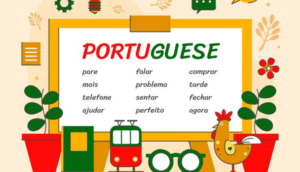Knowing how to express gratitude in a new language is crucial, especially when you’re in a foreign country. Showing appreciation not only helps in making a good impression but also shows respect for the local culture. In Portuguese, saying “thank you” is a bit more nuanced than in some other languages, and understanding these subtleties can enhance your interactions.
The Basic Phrase: “Obrigado” or “Obrigada”
In Portuguese, the most common way to say “thank you” is “obrigado” if you are male, and “obrigada” if you are female. This distinction arises from the fact that in Portuguese, adjectives agree with the gender of the speaker.
- If you are male: Say “Obrigado”.
- Example: “Obrigado pelo presente!” (Thank you for the gift!)
- If you are female: Say “Obrigada”.
- Example: “Obrigada pela ajuda!” (Thank you for the help!)
This gender agreement is a key feature of Portuguese and applies to other adjectives as well. For instance:
- alto (tall, masculine) / alta (tall, feminine)
- cansado (tired, masculine) / cansada (tired, feminine)
Plural Forms: “Obrigados” and “Obrigadas”
When expressing gratitude on behalf of a group, the form of “thank you” changes depending on the composition of the group:
- “Obrigados”: Used if the group includes at least one male.
- Example: “Obrigados a todos os nossos convidados!” (Thank you to all our guests!)
- “Obrigadas”: Used if the group is entirely female.
- Example: “Obrigadas pelo apoio!” (Thank you for the support!)
Expressing Greater Thanks
Sometimes, you might want to emphasize your gratitude further. Here are some ways to do so:
- “Muito obrigado/a”: This means “thank you very much”.
- Example: “Muito obrigado pela oportunidade!” (Thank you very much for the opportunity!)
- “Obrigadão”: An informal way to say “thank you very much” in Brazil.
- Example: “Obrigadão pelo presente!” (Thanks a lot for the gift!)
- “Muitíssimo obrigado/a”: This phrase intensifies the thanks even more.
- Example: “Muitíssimo obrigado pelo apoio contínuo!” (Thank you very, very much for the ongoing support!)
- “Obrigadíssimo/a”: Another way to show extreme gratitude.
- Example: “Obrigadíssimo pelo convite!” (Thank you so much for the invitation!)
Informal and Casual Variants
In casual conversations, you might hear a more relaxed version:
- “Valeu”: This is a slang expression meaning “thanks” and is used among friends or in informal settings.
- Example: “Valeu pela força!” (Thanks for the help!)
- “Brigado”: A shortened, informal variant of “obrigado” you might hear in spoken Brazilian Portuguese.
- Example: “Brigado pela ajuda!” (Thanks for the help!)
- “Agradecido/a”: A formal alternative, meaning “grateful”.
- Example: “Estou muito agradecido pela sua assistência.” (I am very grateful for your assistance.)
Responding to Thanks
When someone says “thank you” to you, the common responses are:
- “De nada” or “Por nada”: Both mean “you’re welcome” or “it was nothing”.
- Example: “Obrigado pela ajuda!” – “De nada!” (Thank you for the help! – You’re welcome!)
- “Não há de quê”: A slightly more formal way of saying “you’re welcome”, meaning “there’s nothing to thank me for”.
Saying Thanks for Specific Actions
In Portuguese, you can specify what you are thankful for using:
- “Obrigado(a) por [verb]”: For thanking someone for an action.
- Example: “Obrigado por dirigir.” (Thank you for driving.)
- “Obrigado(a) pelo/a [noun]”: For thanking someone for a specific item.
- Example: “Obrigado pela comida.” (Thank you for the food.)
Conclusion
Mastering how to say “thank you” in Portuguese and understanding its nuances can greatly enhance your interactions and help you make a positive impression. Whether you’re expressing thanks formally, casually, or in specific situations, using the correct form will show your respect and appreciation.
Obrigado/a por ler este artigo! (Thank you for reading this article!)





